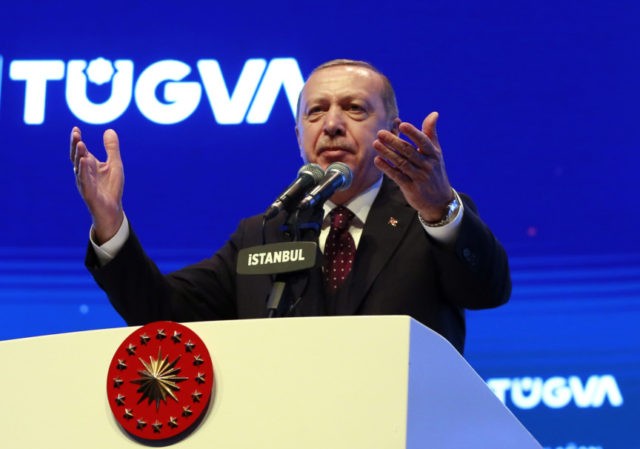Turkish President Recep Tayyip Erdogan on Monday revealed plans to return four million Syrian refugees to Kurdish-held northern Syria, fueling fears that Ankara is going to further upend the region’s long-established demographics by forcibly replacing the local Kurds with Arabs.
“We are aiming in the first phase to create safe zones where four million Syrians who now live in our country can return,” Erdogan declared during a speech in Istanbul, Hurriyet Daily News reports.
For months, some Kurdish leaders and monitor groups have accused Ankara of choreographing a demographic shift in northern Syria’s Afrin region — from Kurds to Arab — a move described as ethnic cleansing by Erdogan’s critics.
“[A] demographic change is being carried out led by military powers that claimed the protection of the Syrians,” the U.K.-based Syrian Observatory for Human Rights (SOHR), a group that monitors the conflict using ground sources, observed in April 2018, soon after the fall of Afrin to Turkey, referring to the Ankara-backed Free Syrian Army (FSA).
Suggesting that the majority of Afrin was Arab before capturing the city, Erdogan talked about returning the northern Syria region to its “rightful owners,” a comment that triggered alarm bells among the Kurdish locals.
Early last year, Turkey and its Syrian rebel allies cleared Afrin of the U.S.allied Kurdish People’s Protection Units (YPG/YPJ), which Ankara believes to be linked to the Kurdistan Worker’s Party (PKK) communist terrorist group.
Erdogan claims that Turkey’s feud is against the YPG, not the Kurdish residents of northern Syria as a whole. Echoing other analysts, the Carnegie Endowment for International Peace has accused the Erdogan administration of oppressing its Kurdish population.
U.S. President Donald Trump reportedly proposed the potential establishment of a safe zone in Kurdish-held northern Syria as a means to protect American-allied locals from a planned Turkish offensive.
Turkey has rejected the Trump administration’s request for assurances that the Syrian Kurdish fighters who helped the U.S.-led coalition decimate the Islamic State (ISIS/ISIL) will be safe from the planned Turkish offensive into northern Syria.
Despite being on opposite sides of the conflict, Syrian dictator Bashar al-Assad’s ally Russia has also signaled support for Turkey creating safe zones.
Turkey held “positive talks” about the safe zones with both the U.S. and Russia, Erdogan proclaimed on Monday, vowing to “continue to be in contact with powers which have a military presence in the field.”
“We will soon bring security and peace to the east of the Euphrates,” he added, claiming that Turkey will “clear” ISIS remnants from Syria, which he said were “deliberately left there and trained against Turkey.”
The Turkish president conceded that the Islamic world “has been unable to effectively cope with crises in its own region.”
Last month, President Trump announced plans to withdraw U.S. troops from Syria and hand the fight against ISIS to Turkey. The Trump administration has been pushing for regional ownership of the conflict in the Middle East.
Kurds believe Turkey’s forced demographic changes in northern Syria are intended to weaken the YPG, the armed wing of the Kurdistan Worker’s Party (PYD) that has maintained control of large swathes of northern Syria with the support of the U.S. military.
America’s support for the YPG, which the U.S. military considers to be the most effective fighters against ISIS, has infuriated Ankara and strained the relationship between NATO allies Turkey and the United States. Nevertheless, U.S. National Security Advisor John Bolton has conditioned the withdrawal of most of the 2,000 American troops from Syria on assurance from Turkey that the Kurds will be safe and ensuring ISIS’s lasting defeat.
U.S.-allied Kurdish fighters have expressed concerns that America’s plan to pull out of Syria will leave them vulnerable to attacks by Turkey.
Bolton has said the U.S. plans to leave a residual force to combat the lingering Iranian threat in Syria. Iran’s support has allowed Russian-backed dictator Assad to remain in power. In exchange, Assad has allowed Iran and its proxies, including the terrorist group Hezbollah, to operate in Syria, which borders Tehran’s enemy and America’s important Middle East ally Israel.

COMMENTS
Please let us know if you're having issues with commenting.